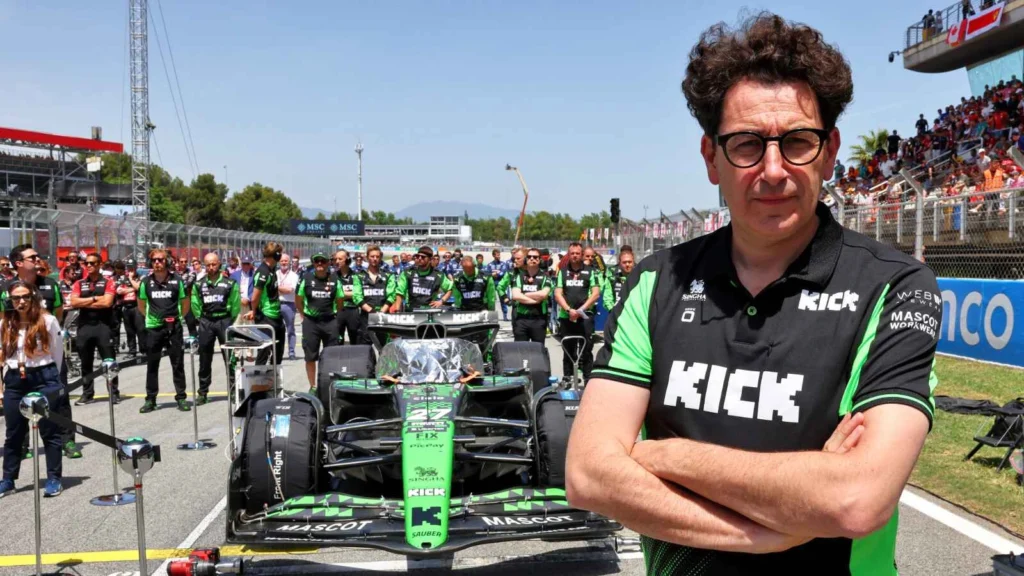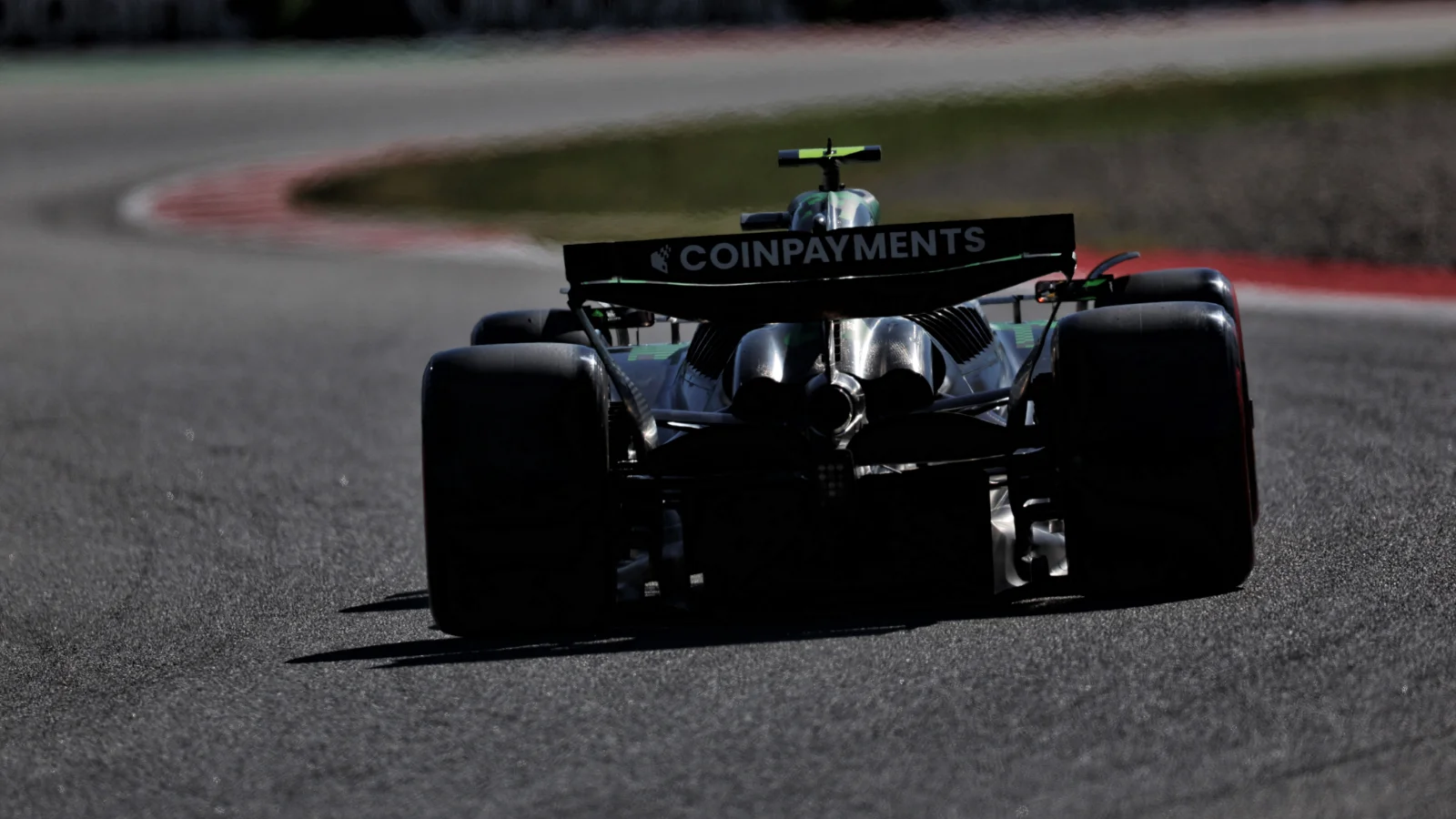Audi F1 chief Mattia Binotto doesn’t believe his team will nail the 2026 Formula 1 engine regulations right from the start.
The 2026 season is ready to usher in a new era in the sport with sweeping changes being brought to the technical regulations. Not only are the cars shedding weight, but a brand new set of power unit regulations will see an increase in electrical output, making it a near 50-50 hybrid between the internal combustion engine and the battery.
F1’s push towards a more sustainable solution to Grand Prix racing has also attracted some of the biggest engine manufacturers to hedge their bets on the series.
Cadillac, which will field itself as the 11th team on the grid from next season onwards, will transform into a works outfit from 2029 after it kickstarts its own engine programme.
Audi and Ford are also set to join the grid in 2026, with the latter collaborating with Red Bull Powertrains division on the revamped power unit regulations.
The German marque, on the other hand, has acquired the Sauber team and will rebrand as a factory outfit when the new regulations kick in from next year.
“Making power units, I know this well because I was an engine engineer, is much more complex and complicated than one might imagine watching races as a spectator,” Binotto told Autosport.
“Therefore, we will find a higher level of difficulty, even though the starting point is always an engine. We will have to change the culture of the engine and it will not be easy.”
Binotto, who headed Ferrari’s power unit department before being promoted to team boss in 2019, has set expectations for Audi’s first engine under the new regime.
While he believes its programme is heading in the right direction, the Swiss-Italian is pragmatic enough to concede that they won’t be leading the field right off the bat.
“We know that 2026 will not be the year in which we’ll be at the top. We won’t have the best power unit, but the path that has been taken is the right one, I’m confident.”

Binotto fears an engine championship in 2026
Next season will be the first time since 2014 – when the incumbent turbo-hybrid engines were introduced – that the engine formula has changed this drastically.
Back then, Mercedes kicked off a rampant run of eight consecutive Constructors’ titles.
With the benefit of hindsight, Binotto has highlighted how the new engine rules could repeat history and set one team up for a prolonged period of dominance.
“In 2014 when a more important hybrid was introduced on the power unit, it was an engine championship at the beginning,” he asserted.
“Because Mercedes had made the difference. It’s a situation that could happen again and those who have to recover will try to do so.”
Other consequent factors such as fuel choice will also determine how the competitive order stacks up, come 2026.
“The new regulations give more control to the teams in terms of what fuel they decide to run – with options such as e-fuels and biofuels also in the mix.
Audi has an apparent advantage in this regard owing to its parent company Volkswagen’s foray into sustainable petrol alternatives with its Porsche brand.
At the end of the day, Binotto expects this to be decisive in arranging the competitive landscape of F1 in the coming years.
“Fuel will become a differentiating factor [for the teams in 2026].”
READ MORE — Red Bull Junior Arvid Lindblad granted exemption for FIA superlicense









Discussion about this post